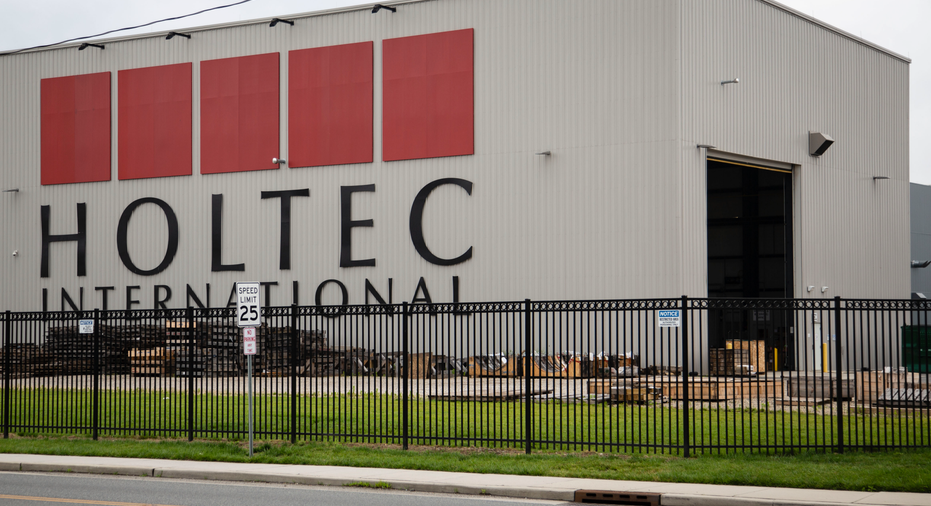Task force report finds special interests shaped tax credits

TRENTON, N.J. – A state task force found private stakeholders, particularly those linked to an influential Democratic fundraiser and business executive in southern New Jersey, helped craft tax credits to benefit their business interests.
The 75-page report by Democratic Gov. Phil Murphy's tax credit task force came out late Monday, soon after a judge ruled that release of the report was in the public's interest and despite a legal challenge by George Norcross and the firms covered in the report.
Murphy said Tuesday the report showed the system is "rigged," and again said he'd reject any effort to extend it without any reforms.
Norcross is executive chairman of insurance brokerage Conner Strong & Buckelew and chairs the board of Cooper University Health in Camden.
In a letter to lawmakers, he disputed the findings and asked for chance to clear the "clouds of suspicion" surrounding his and other Camden firms.
He is a major Democratic fundraiser and former Camden County party chairman. He, Conner Strong, Cooper and other firms mentioned during a task force hearing and in the report sued Murphy, saying the panel is defaming them.
Tax credits have become a major issue since the 2013 programs expire June 30, but also because in 2017 and earlier this year state officials filed reports raising concerns that the Economic Development Authority, which runs the tax credit programs, could not verify that companies were meeting required benchmarks in order to get awards.
Since it started its work in January, the task force has made an unspecified criminal referral.
A closer look at the report's findings:
___
SPECIAL INTEREST INFLUENCE
The report found that Philip Norcross — George Norcross' brother— and Kevin Sheehan, a partner at the law firm Parker McCay, helped drafted the legislation that would become the 2013 Economic Opportunity Act, revelations detailed in earlier media reporting by The New York Times, WNYC and ProPublica.
The task force report, though, adds that that their changes were intended to help Conner Strong, among other firms that Parker McCay represented, and that the size of Conner Strong's 2017 award hinged on their role in writing the bill.
Conner Strong was approved in 2017 for an $86 million award by the Economic Development Authority.
"An award of that size would have likely been impossible if not for statutory amendments that Parker McCay played a pivotal role in incorporating into the legislative design," the report said.
___
'QUIETLY'
Cooper was awarded $40 million in credits based on its application to move certain administrative jobs from suburban Camden into the city.
The hospital had initially said it never intended to leave New Jersey, but later certified it was considering a move to Pennsylvania.
One of the requirements for tax credits was for companies to show that they intended to leave the state, though the law carved out an exception for Camden, saying that it was not necessary for firms to show they would leave the state if they were moving to Camden.
Still, Cooper later certified to the EDA that it was considering taking the administrative jobs to Philly. That inconsistency surfaced during the task force's May 2 hearing, but for the first time in the report an email from a Cooper executive to a real estate broker showed the hospital did not intend to leave New Jersey.
"(Can) you get me a term sheet for 120k sf? Quietly? No probability of us moving to Center Sq, so I don't want to make too much noise," the Cooper official wrote.
The task force says that even though the EDA did not have that email, the application raised "numerous red flags" that should have called into question the sincerity of their statement that a move to Philadelphia was possible.
In a statement Cooper disputed that it certified it was considering a move to Philadelphia and called the report biased and misleading.
___
HOLTEC'S AWARD SUSPENDED
In addition to special interests' helping draft the law to benefit private parties, the report says the EDA lacked written politics and failed to train staff adequately.
One example came from a $260 million award to Holtec International, which makes storage units in Camden for spent nuclear fuel. The report says that EDA failed to conduct a simple internet search, which would have revealed that Holtec was barred from doing business with the Tennessee Valley Authority briefly in 2010. Any such so-called debarment would have been grounds for EDA to deny Holtec's award application, the report said.
Holtec said in its application that it had no prior history of debarment.
That detail was first reported recently by other media, but the report confirms it and adds that last month, "Holtec acknowledged that it did not disclose its prior debarment in its application and sought to amend its application."
The EDA has since suspended Holtec's tax-incentive award, according to the report.
___
RESPONSE?
The governor reached beyond his powers to establish the task force, according to the lawsuit from Norcross, Cooper, Parker McCay, Conner Strong, The Michaels Organization and NFI. They also said the task force did not afford them their due process rights to protect their reputations during the May hearing.
In a statement, Norcross and his co-plaintiffs said they want to "lift the clouds of suspicion" that have settled on firms that moved to Camden under the tax incentive programs.
In a separate letter sent to legislators on Tuesday, Norcross asked to appear before their committees.
"I hope that testifying before your committee(s) will allow me to correct the factual inaccuracies, gross misstatements and misleading information released by the Governor's Task Force," he wrote.



















